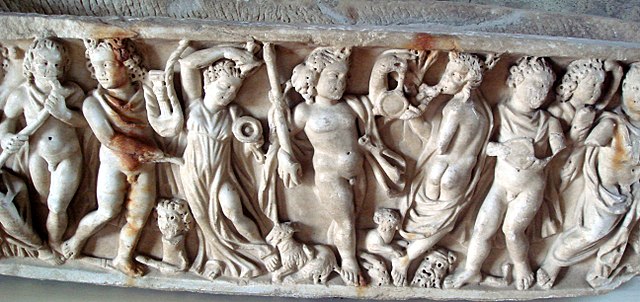In philosophy, metempsychosis is the transmigration of the soul, especially its reincarnation after death. The term is derived from ancient Greek philosophy, and has been recontextualized by modern philosophers such as Arthur Schopenhauer, Kurt Gödel, Mircea Eliade, and Magdalena Villaba; otherwise, the word "transmigration" is more appropriate. The word plays a prominent role in James Joyce's Ulysses and is also associated with Nietzsche. Another term sometimes used synonymously is palingenesis.
A section of Metempsychosis (1923) by Yokoyama Taikan; a drop of water from the vapours in the sky transforms into a mountain stream, which flows into a great river and on into the sea, whence rises a dragon (pictured) that turns back to vapour; National Museum of Modern Art, Tokyo (Important Cultural Property)
Reincarnation, also known as rebirth or transmigration, is the philosophical or religious concept that the non-physical essence of a living being begins a new life in a different physical form or body after biological death. In most beliefs involving reincarnation, the soul of a human being is immortal and does not disperse after the physical body has perished. Upon death, the soul merely becomes transmigrated into a newborn baby or an animal to continue its immortality. The term transmigration means the passing of a soul from one body to another after death.
Illustration of reincarnation in Hindu art.
In Jainism, a soul travels to any one of the four states of existence after death depending on its karmas.
A second-century Roman sarcophagus shows the mythology and symbolism of the Orphic and Dionysiac Mystery schools. Orpheus plays his lyre to the left.
American psychologist and philosopher William James (1842–1910) was an early psychical researcher.





